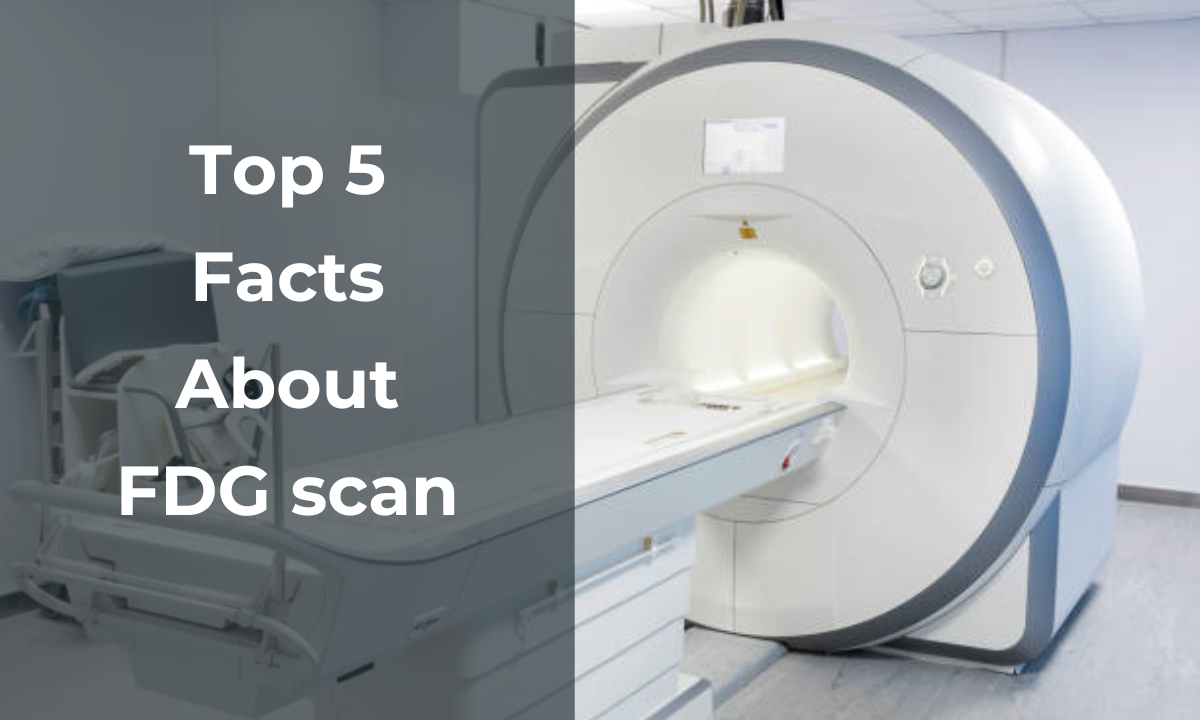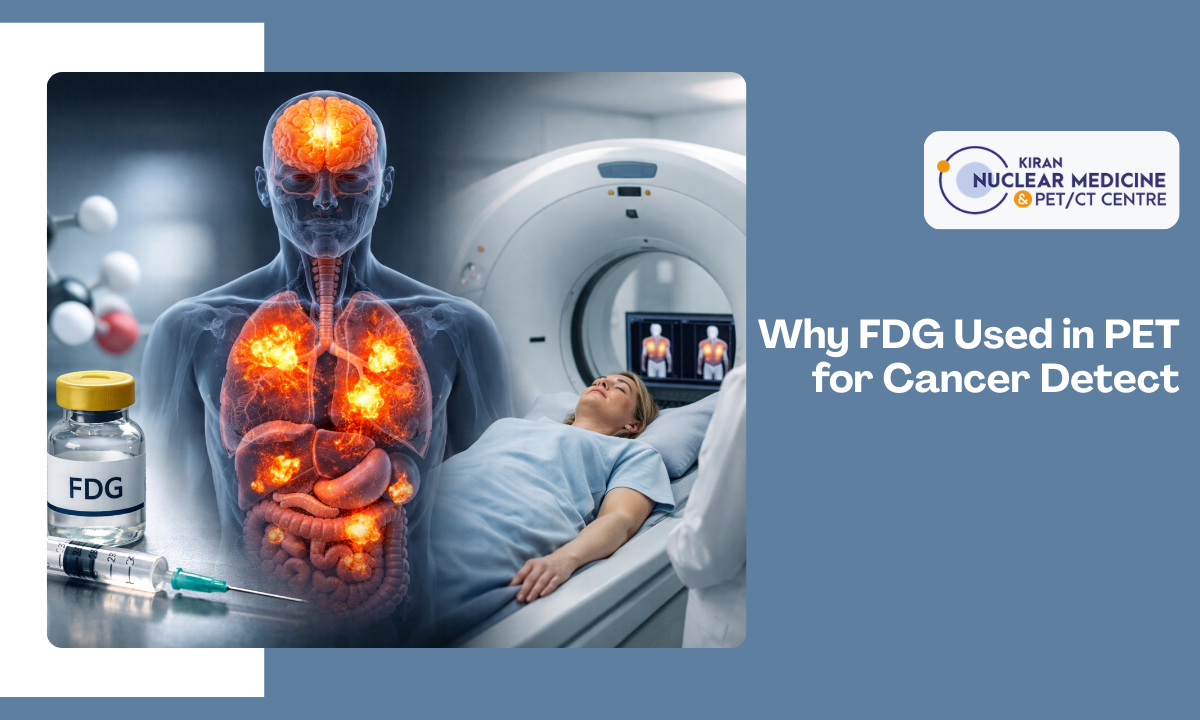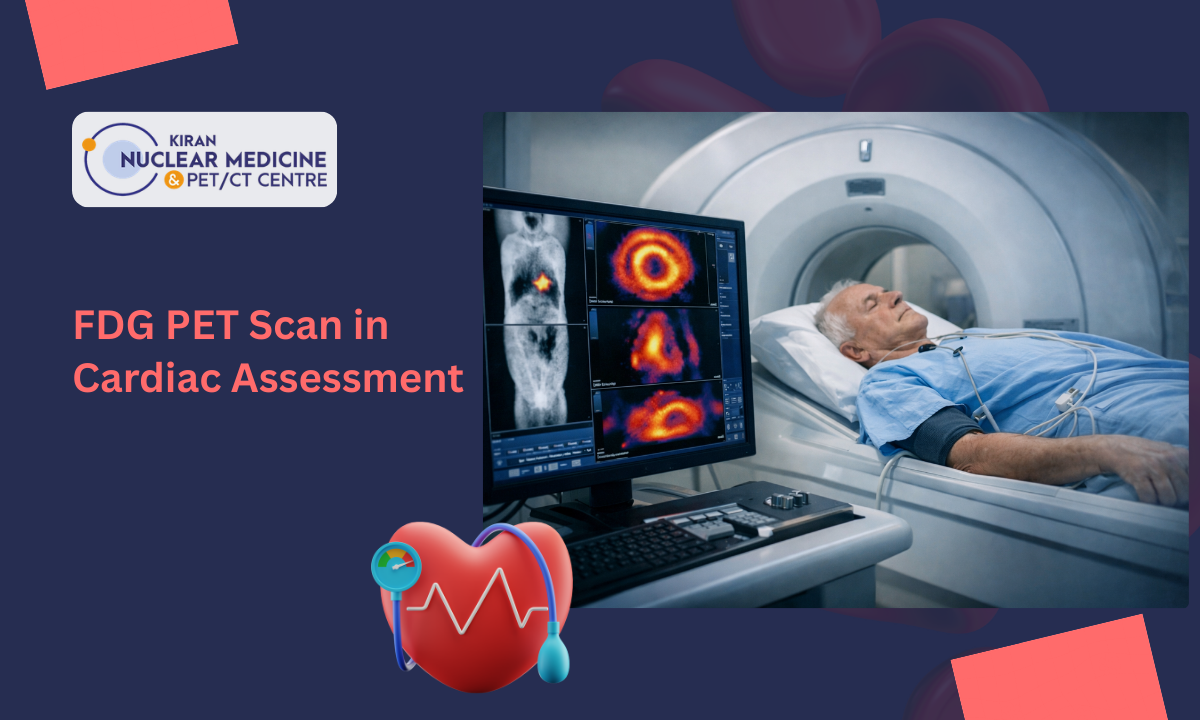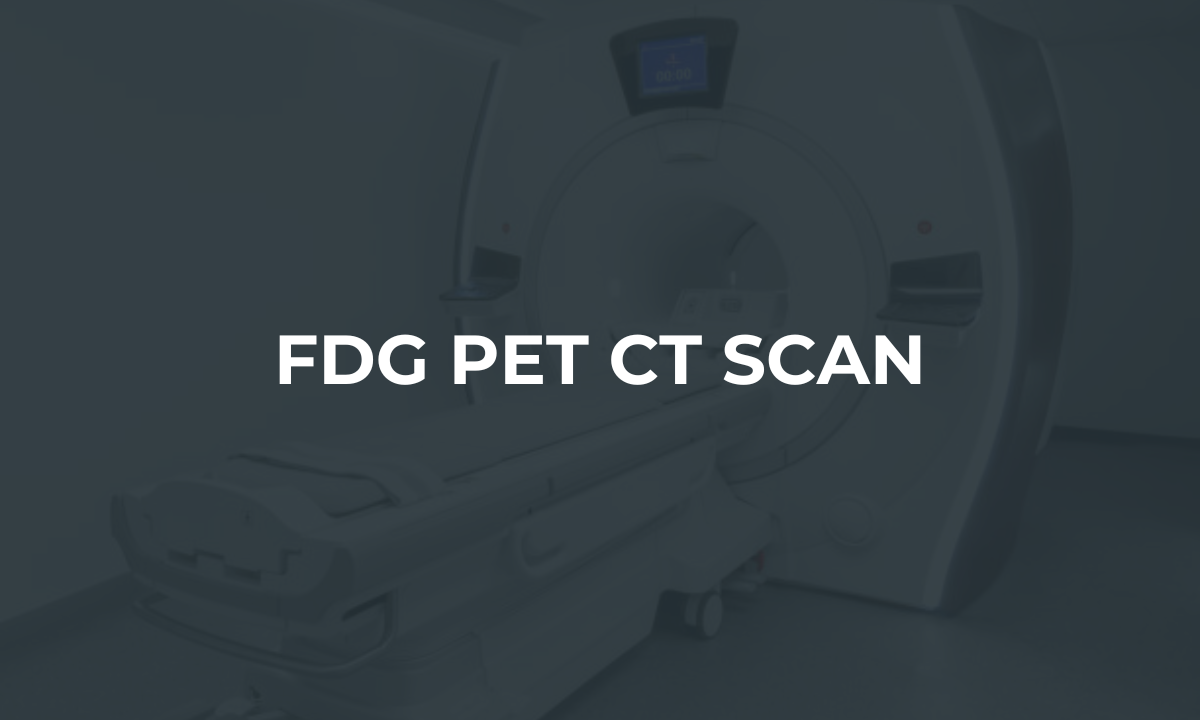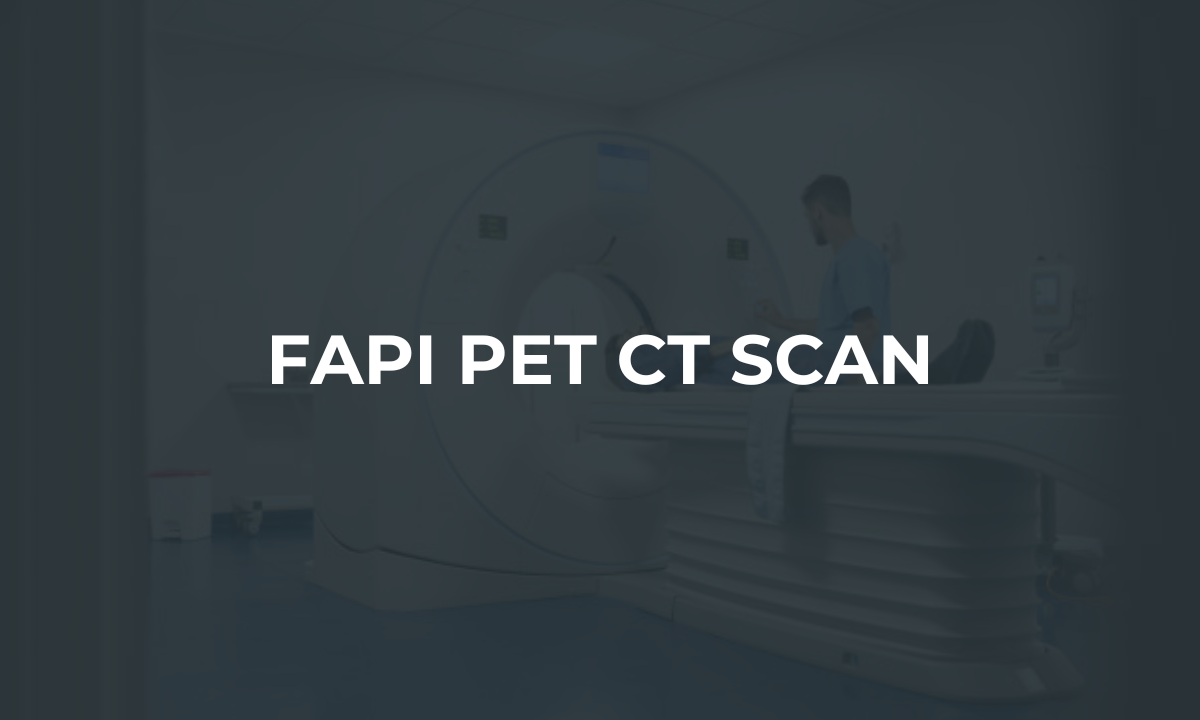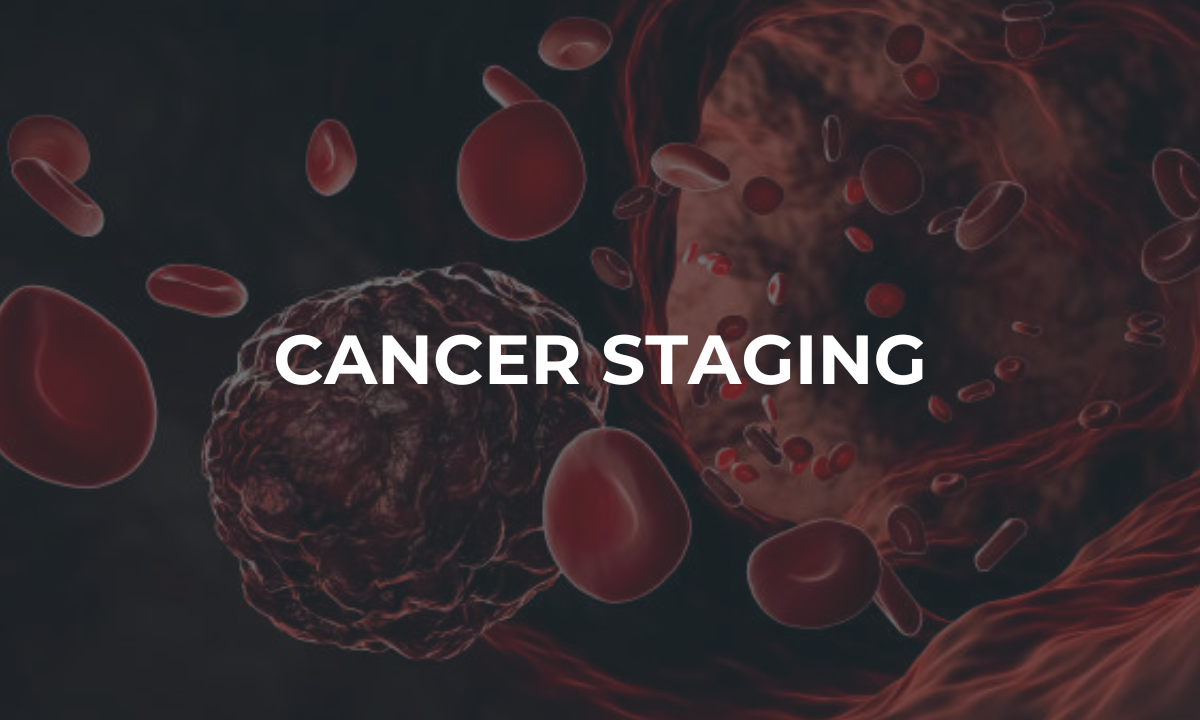If you’re preparing for your first FDG PET CT scan, it’s natural to feel a bit anxious or uncertain about the procedure. An FDG PET CT scan is a powerful diagnostic tool, particularly useful in identifying cancer, monitoring its spread, and even assessing how well treatment is working. This scan combines positron emission tomography (PET) and computation tomography (CT) with a radiotracer called fluorodeoxyglucose (FDG) to create detailed images of your body’s cellular activity.
If you’re in Bangalore and planning to undergo an FDG PET CT scan, here are the top five things to keep in mind to help you understand the process better and ensure you’re fully prepared for the procedure.
What is an FDG PET CT scan?

Before diving into the logistics, it’s essential to understand what an FDG PET CT scan is. This advanced imaging test works by injecting a small amount of radioactive glucose (FDG) into your body. Since cancer cells tend to absorb more glucose than healthy cells, the scan allows doctors to pinpoint areas of high cellular activity, which could be an indication of disease. If you’re looking for a PET CT scan in Bangalore, several reputable facilities offer this diagnostic service.
FDG PET CT scans are widely used for detecting cancer, heart problems, and brain disorders. It’s especially valuable for oncologists as it helps monitor the effectiveness of cancer treatments and assists in planning further therapeutic strategies.
How to Prepare for Your FDG PET CT scan?
Preparation for an FDG PET CT scan requires attention to a few key aspects. Following these guidelines will ensure the scan results are accurate and the procedure goes smoothly.
- Dietary Restrictions: Most doctors will ask you to fast for at least 4-6 hours before the scan, although water is generally allowed. This is because your body’s normal glucose levels could interfere with the test results. In Bangalore, radiology centers might also suggest eating a low-carb, high-protein diet 24 hours before the scan to minimize glucose uptake in your body’s tissues.
- Medications: Inform your doctor if you are taking any medications, especially for diabetes, as the radiotracer FDG interacts with glucose in your system. For diabetic patients, special instructions are often provided to manage blood sugar levels during the fasting period.
- Clothing: Wear comfortable clothing, as you’ll need to remain still during the scan. Avoid jewelry and metallic accessories, as these can interfere with imaging.
What to Expect During the Procedure?
An FDG PET CT scan typically lasts between 60 to 90 minutes, though this can vary based on the type of scan and area of focus. Here’s a breakdown of what you can expect during your FDG PET CT scan in Bangalore:
- Injection of FDG: After arriving at the clinic, a small dose of radioactive glucose will be injected into a vein in your arm. You won’t feel any discomfort from this, but you’ll need to wait 30 to 60 minutes for the radiotracer to distribute throughout your body.
- The Scan: Once the FDG is absorbed by your body’s tissues, you’ll lie down on a table that slides into a large, donut-shaped scanner. The scanner detects the radiation emitted by the FDG, and a computer generates images based on this information. You will need to stay very still during this part to get clear, accurate images.
- Post-Scan: After the scan, you can return to your normal activities. The radioactive material will leave your body naturally through urine or stool over the next 24 hours. Drinking plenty of water will help expedite this process.
Safety Considerations
If you’re worried about the safety of the radioactive substance used in an FDG PET CT scan, you can rest assured that the procedure is considered very safe. The amount of radiation exposure is comparable to other diagnostic tests like CT scans, and it is not harmful for most people. However, you should inform your doctor if you are pregnant or breastfeeding, as radiation can be more harmful in these cases.
FDG PET/CT scan in Bangalore is conducted in top medical facilities under strict safety regulations. Technicians and medical professionals will ensure that you are comfortable throughout the procedure and minimize any potential risks.
Interpreting the Results
Once your scan is completed, a radiologist will analyze the images and provide a report to your doctor. In Bangalore, many hospitals and clinics are equipped with state-of-the-art imaging technology, ensuring that the results are accurate and delivered promptly.
The FDG PET CT scan can reveal a variety of conditions. For cancer patients, it can indicate whether the cancer has spread to other areas of the body or if the treatment is effective. It’s essential to have a follow-up discussion with your doctor to fully understand what the results mean and to map out the next steps in your treatment or care plan.
Conclusion
Getting your first FDG PET CT scan can be a daunting experience, but understanding the procedure and knowing how to prepare will make it more manageable. If you’re getting your scan in Bangalore, you’ll find that the city is home to some of the most advanced PET scan facilities in the country, providing high-quality imaging services for various medical conditions.
Remember to follow your doctor’s preparation guidelines, ask questions about the procedure if you’re unsure, and stay relaxed during the process. By knowing what to expect and preparing adequately, you can ensure a smooth and effective diagnostic experience with your FDG PET CT scan.
Kiranpet Nuclear Medicine & PET/CT Centre offers comprehensive medical imaging and diagnostic services, providing accurate and timely results to support patient care. Contact us today.

